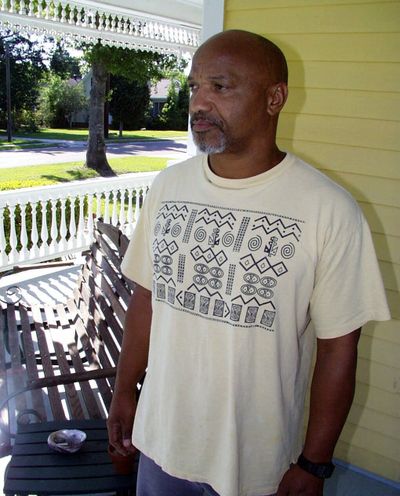‘Geronimo’ Pratt, wrongly convicted

Elmer “Geronimo” Pratt, a former Black Panther Party leader who spent 27 years in prison on a murder conviction that was later overturned, has died. He was 63.
Pratt died at his home in a small village in Tanzania, where he had lived for at least half a decade, said lawyer Stuart Hanlon, who helped Pratt win his freedom.
Hanlon said he learned of Pratt’s death through the former activist’s family members. He did not know what caused Pratt’s death, but said he had suffered from high blood pressure.
Hanlon said Pratt refused to carry any resentment about his treatment by the legal system.
“He had no anger, he had no bitterness, he had no desire for revenge. He wanted to resume his life and have children,” he said. “He would never look back.”
His lawyers, who included high-profile defense attorney Johnnie Cochran, blamed his arrest on a politically charged campaign by J. Edgar Hoover’s FBI against the Black Panthers and other perceived enemies of the U.S. government.
Pratt’s belated reversal of fortune came with the disclosure that a key prosecution witness hid the fact he was an ex-felon and a police informant.
Pratt was freed in June 1997. He settled a false imprisonment and civil rights lawsuit against the FBI and city of Los Angeles for $4.5 million in 2000.
Harry Bernstein, published at 96
Harry Bernstein, whose acclaimed memoir of an English childhood haunted by anti-Semitism – “The Invisible Wall” – was published when he was 96, has died at 101.
Bernstein died Friday at his daughter’s Brooklyn home, said Bruce Frankel, a friend and author.
Critics have compared Bernstein’s world of pain and prejudice to those of D.H. Lawrence and Isaac Bashevis Singer.
Bernstein had written 40 other books but destroyed most of the manuscripts after they were rejected by publishers. His eventual success became an inspiration for other struggling authors, and in 2008 – at age 98 – he was awarded a Guggenheim Fellowship to pursue his writing.
In “The Invisible Wall,” Bernstein wrote about his bleak childhood in an English mill town, with Christians and Jews co-existing uneasily. For eight years he served as a messenger between his sister and the Christian youth she was dating. The two had to keep their love secret because of religious prejudice.